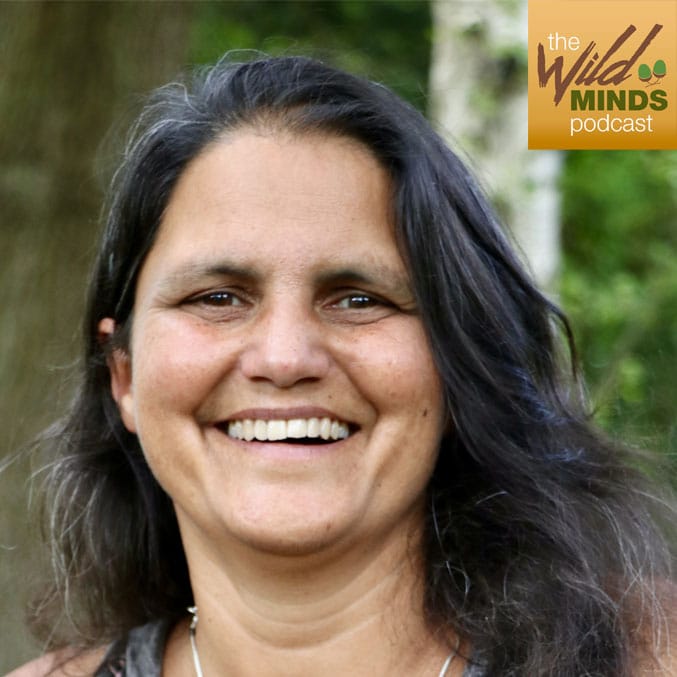
Episode 63:
Cultural Emergence and Permaculture
Guest: Looby Macnamara
Share:

Hosted by: Marina Robb

Looby Macnamara
In this week’s episode of the Wild Minds Podcast, I'm speaking with Looby Macnamara about permaculture, cultural emergence, and how small shifts in our habits and decision-making can lead us toward a more sustainable future. We discuss how thinking outside the box and embracing the unexpected can open up new pathways for growth.
Looby Macnamara is the co-founder of the global Cultural Emergence movement..She is an author, designer, gardener, song leader, mother, and artist. She is the author of four influential books: People & Permaculture, 7 Ways to Think Differently, Cultural Emergence, and Strands of Infinity, and creator of the CEED -Cultural Emergence Empowerment & Design card deck.
Looby is a visionary thought leader who inspires thousands with her creative approaches to regenerative change. People & Permaculture is the first book globally to translate permaculture to people-based systems. Her latest toolkit Cultural Emergence brings together innovative models for behavioural and cultural change, weaving together systems thinking, cultural awareness, design, and nature connection.
Looby runs Applewood Permaculture Centre in Herefordshire, UK, with her partner Chris Evans, where they facilitate courses and demonstrate both land and people permaculture.
Looby is an active member of the Permaculture Association Britain, and has been chair person and trustee. She is currently a senior tutor. Looby is on the expert panel for the design council. She is one of the founding partners of the international Mother Nature project.
In this episode, we dive into:
- Looby explains how permaculture is not just about gardening but about a way of thinking, feeling, and observing that affects all parts of life, including relationships, health, and well-being.
- The importance of Earth care, People care, and Fair share as foundational principles for creating a more sustainable world, and how cultural emergence can shift societal norms in a regenerative direction.
- We explore how to make decisions that align with permaculture ethics, moving away from judgment and fostering a “culture of allowance” to support thoughtful choices without alienating others.
- The idea of “doing the unexpected” and stepping out of traditional pathways, like the conventional education-to-job journey, to embrace the unknown and create new opportunities for ourselves.
- Reflecting on personal habits, I talk about how we can support teenagers in making healthier choices, such as moving away from fast food culture, in a non-judgmental way that empowers their decisions rather than imposes them.
- We discuss the power of context in decision-making, like the cultural norms around eating, and the differences between being “caring” (e.g., choosing comfort food like rum and coke) versus “healthy” (e.g., making choices that support well-being and Earth care).
- Looby highlights the importance of understanding the context when addressing choices, such as in the case of militant veganism or the ethics of eating roadkill deer, showing how context shapes our understanding and decisions.
- Looby shares how the Design Web can be used in everyday life, from parenting to teaching, to help people make better, more creative decisions and take responsibility for their choices.
- Emergence is central to Looby’s approach—how when we embrace uncertainty and let go of rigid expectations, we create space for new insights, collaboration, and action.
Music by Geoff Robb: www.geoffrobb.com
Links
|


